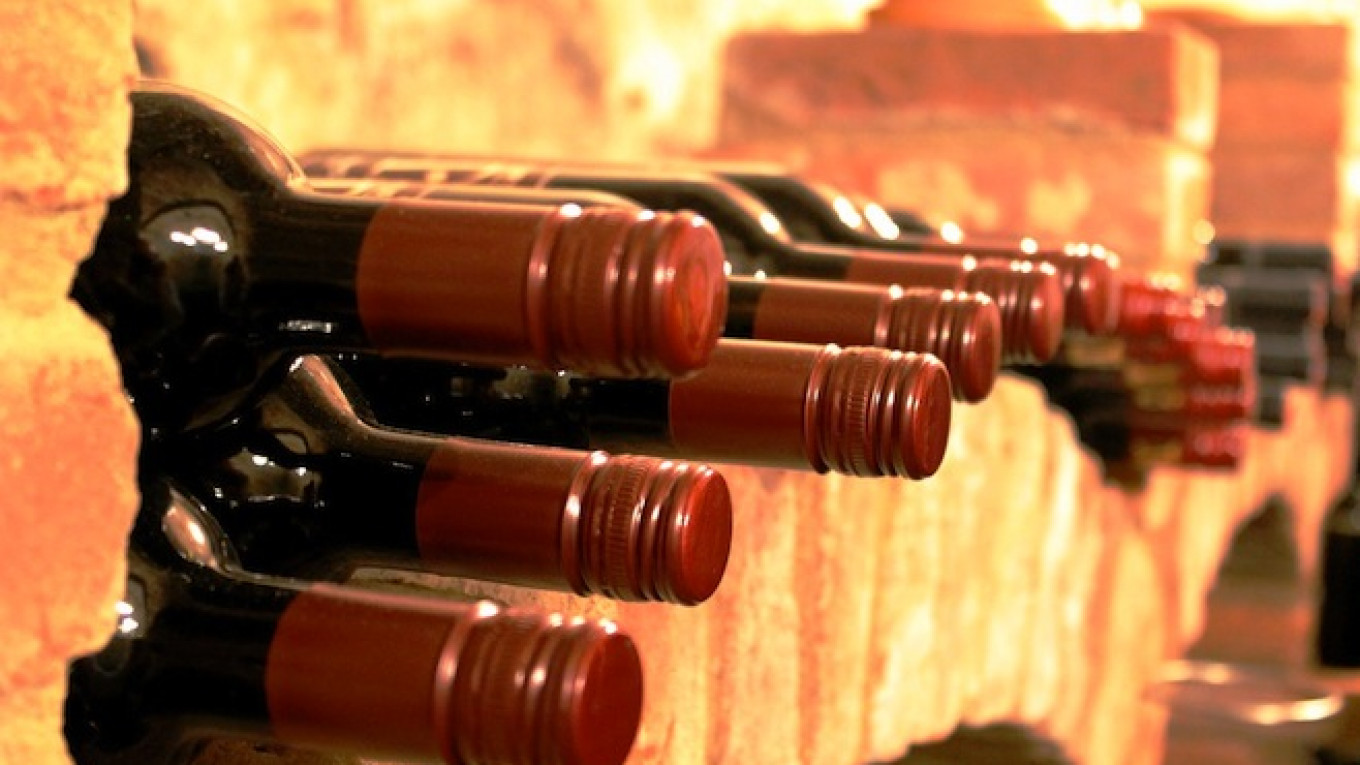Russia's consumer rights watchdog Rospotrebnadzor has banned three types of wine from the United States in the latest incident involving food quality from nations that have criticized the country's role in the Ukraine conflict.
On Monday, Rospotrebnadzor banned the semi-dry white wine Gnarly Head Chardonnay, produced by Delicato Family Vineyards; the dry red wine Geyser Peak Merlot, produced by Geyser Peak Winery; and the sweet white wine Crane Lake Moscato, produced by Crane Lake Cellars; after the watchdog's investigation showed excess levels of phthalic acid and pesticides in the wines.
“Phthalic acid … can cause functional and organic changes in the central and peripheral nerve system … also oncological illnesses and fertility problems in men and women,” Rospotrebnadzor said on its website. The statement said that the wine has been removed from the market.
This is not the first time that Rospotrebnadzor has targeted U.S.-produced alcohol. In August last year, the watchdog found phtalates in 1792 Ridgemont Reserve Kentucky Straight Bourbon Whiskey, produced by the Barton 1792 Distillery. Later that same month, benzyl benzoate, which is used as a pesticide, was detected in Jack Daniels Honey Liqueur in Russia's Sverdlovsk region.
Over the past few months, Rospotrebnadzor has been actively imposing bans on food from Western countries in what some observers see as a politically motivated move targeted at imports from countries that slapped sanctions on Russia over its support for separatists in Ukraine.
Last week, Rospotrebnadzor announced a ban on a brand of canned sprats from Poland.
Earlier this month, Russia added Albania, Montenegro, Liechtenstein and Iceland to a list of countries from which it has banned most food imports, a decision that followed a decree signed on July 29 to destroy all banned food confiscated at Russia’s borders.
As of Aug. 8, 8,332 metric tons of vegetables and 39 metric tons of animal products had been steamrolled.
A Message from The Moscow Times:
Dear readers,
We are facing unprecedented challenges. Russia's Prosecutor General's Office has designated The Moscow Times as an "undesirable" organization, criminalizing our work and putting our staff at risk of prosecution. This follows our earlier unjust labeling as a "foreign agent."
These actions are direct attempts to silence independent journalism in Russia. The authorities claim our work "discredits the decisions of the Russian leadership." We see things differently: we strive to provide accurate, unbiased reporting on Russia.
We, the journalists of The Moscow Times, refuse to be silenced. But to continue our work, we need your help.
Your support, no matter how small, makes a world of difference. If you can, please support us monthly starting from just $2. It's quick to set up, and every contribution makes a significant impact.
By supporting The Moscow Times, you're defending open, independent journalism in the face of repression. Thank you for standing with us.
Remind me later.


